Cat in the Stax: Black History Month
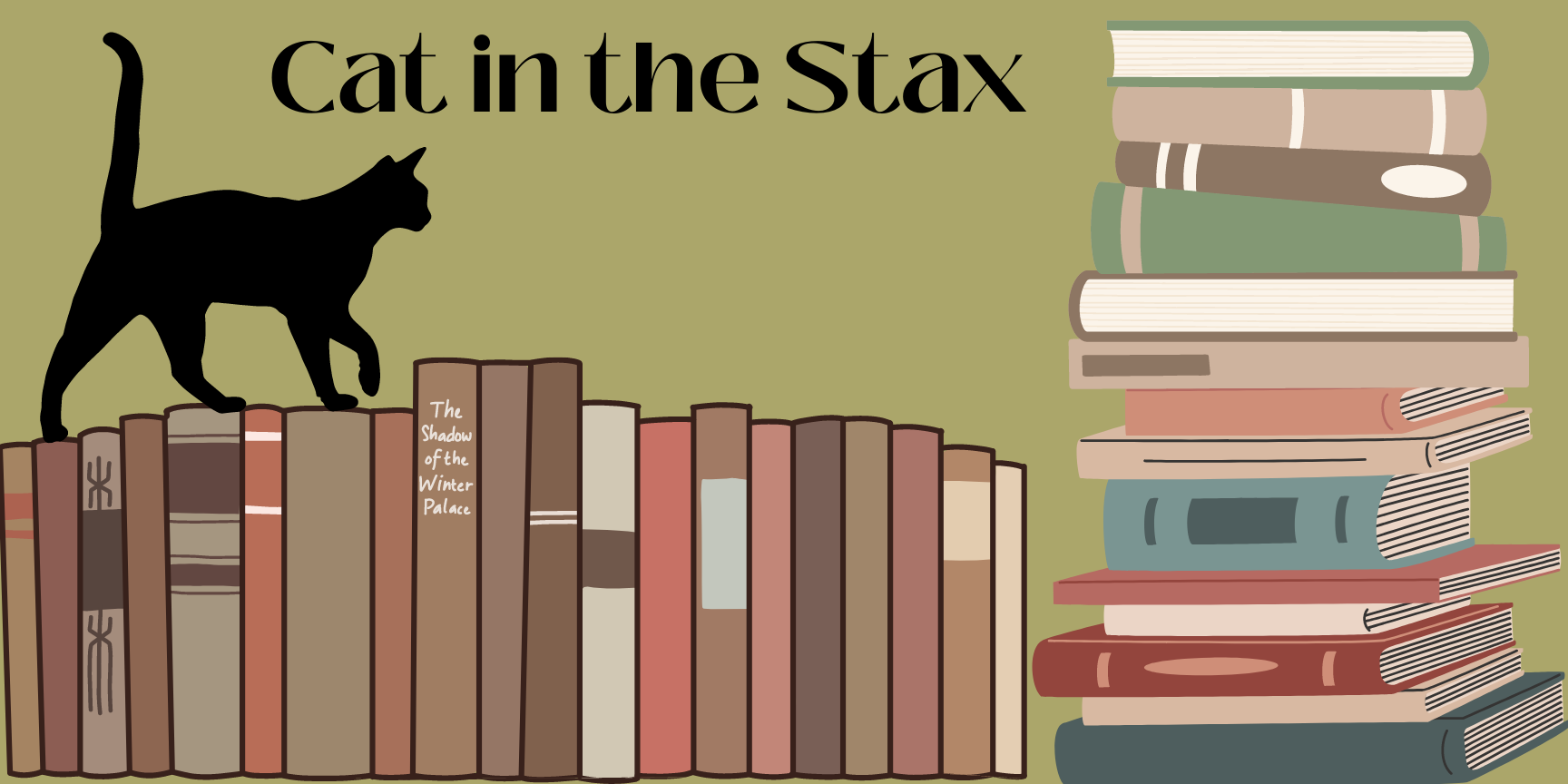
As Falvey’s Cat in the Stax, Rebecca writes articles covering a broad range of topics, from academics to hobbies to random events. All the while highlighting how Falvey Library can enhance your Villanova experience!

Happy Wednesday, Wildcats! Last Thursday marked the start of Black History Month, a time to celebrate the accomplishments of African Americans and recognize their role in U.S. history. Black History Month begins on Feb. 1 and ends on Mar. 1. Started by Harvard historian Carter G. Woodson in 1915, the observance was originally known as “Negro History Week.” President Gerald Ford officially established Black History Month in 1976 as a way to acknowledge and honor the contributions and achievements of African Americans. In honor of this annual event, I’ve compiled a list of contemporary Black writers whose work is available at Falvey. Be sure to check out some of these texts!

Alice Walker (Photo by Noah Berger)
Alice Walker
A prolific writer, Alice Walker is an internationally celebrated author, poet, and activist. She has written seven novels, four short story collections, four children’s books, and several volumes of essays and poems. Her work has been translated in over two dozen languages, and her books have sold more than 15 million copies. Her most well-known bestseller is The Color Purple, which was made into a film in 1985 and again this past October. Alice Walker also wrote Everyday Use, and Now is the Time to Open Your Heart. Some of her poetry collections include Hard Times Require Furious Dancing, Horses Make a Landscape Look Beautiful, and Absolute Trust in the Goodness of the Earth.

Colson Whitehead (Photo by Chris Close)
Colson Whitehead
Colson Whitehead is a graduate of Harvard college who began his writing career by writing reviews for the Village Voice. He published his first novel in 2000 and now has 10 books under his belt. A few of his books are historical fiction novels that look at the past and offer a commentary on the current state of race in America. His novel The Underground Railroad won him a Pulitzer Prize and the National Book Award. He won a second Pulitzer Prize in 2020 for his book The Nickel Boys. Colson Whitehead is also the author of Harlem Shuffle, Zone One, and Sag Harbor.

Jacqueline Woodson (Photo by Ini Tomeu)
Jacqueline Woodson
Jacqueline Woodson is an incredibly prolific writer who writes books for adults, children, and adolescents. She is best known for her memoir Brown Girl Dreaming which won her a National Book Award for Young People’s Literature in 2014. She also wrote Another Brooklyn and Red at the Bone. Her stories often address themes like friendship, race, and coming of age. From 2015-2017, Jacqueline Woodson was the Young People’s Poet Laureate, and a year later, she was named the National Ambassador for Young People’s Literature at the Library of Congress for 2018–2019.

Jericho Brown (Photo by Darnell Wilburn)
Jericho Brown
A professor at Emory University and director of their Creative Writing Program, Jericho Brown is a poet whose poems have appeared in The Bennington Review, Buzzfeed, Fence, jubilat, The New Republic, The New York Times, The New Yorker, The Paris Review, TIME magazine, and several volumes of The Best American Poetry. He won a Pulitzer Prize in 2020 for his poetry collection The Tradition, which explores how we’ve become accustomed to terror in our society. He has also published the poetry collections Please and The New Testament.
In honor of Black History Month, Villanova has organized several events throughout the month of February. Click this link to see the various events the University will be hosting in the upcoming weeks.
 Rebecca Amrick is a first year graduate student in the English Department and a Graduate Assistant at Falvey Library.
Rebecca Amrick is a first year graduate student in the English Department and a Graduate Assistant at Falvey Library.



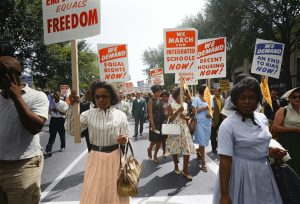
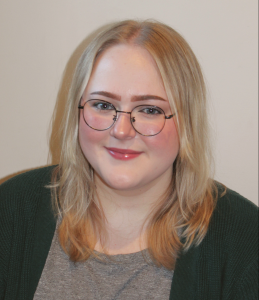 Annie Stockmal is a second-year graduate student in the Communication Department and Graduate Assistant in Falvey Library.
Annie Stockmal is a second-year graduate student in the Communication Department and Graduate Assistant in Falvey Library.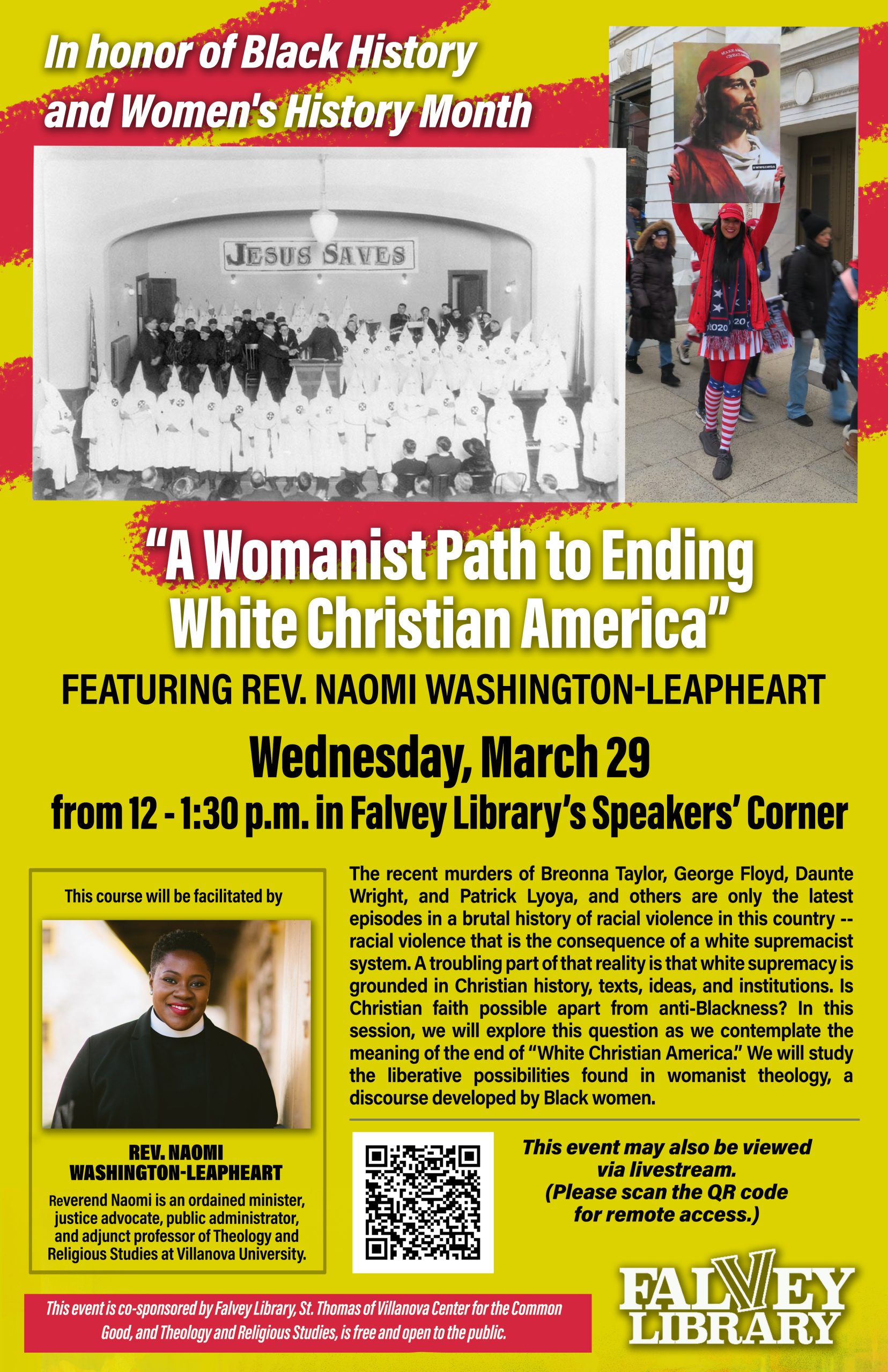




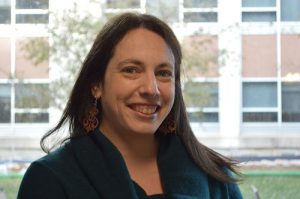 Rebecca Oviedo is Distinctive Collections Archivist at Falvey Memorial Library.
Rebecca Oviedo is Distinctive Collections Archivist at Falvey Memorial Library.

 Kallie Stahl ’17 MA is Communication and Marketing Specialist at Falvey Memorial Library.
Kallie Stahl ’17 MA is Communication and Marketing Specialist at Falvey Memorial Library.



 Shawn Proctor is Communication and Marketing Program Manager at Falvey Library.
Shawn Proctor is Communication and Marketing Program Manager at Falvey Library.


 A specific moment of close reading that stood out to me involved Genesis 15:18-21. In these verses, the Lord gives Abram land that belongs to the Kenites, Kenizzites, and Kadmonites among many other groups. Rather than rejoicing about Abram’s acquisition, Rev. Washington-Leapheart led the crowd to consider the plight of the Kenites, Kenizzites, and Kadmonites. Would they have seen this gift from the Lord as a blessing? By reframing the way we read the Bible, the narrative that has been established through years of social and cultural immersion can be flipped.
A specific moment of close reading that stood out to me involved Genesis 15:18-21. In these verses, the Lord gives Abram land that belongs to the Kenites, Kenizzites, and Kadmonites among many other groups. Rather than rejoicing about Abram’s acquisition, Rev. Washington-Leapheart led the crowd to consider the plight of the Kenites, Kenizzites, and Kadmonites. Would they have seen this gift from the Lord as a blessing? By reframing the way we read the Bible, the narrative that has been established through years of social and cultural immersion can be flipped. Ethan Shea is a first-year English Graduate Student at Villanova University and Graduate Assistant at Falvey Memorial Library.
Ethan Shea is a first-year English Graduate Student at Villanova University and Graduate Assistant at Falvey Memorial Library.